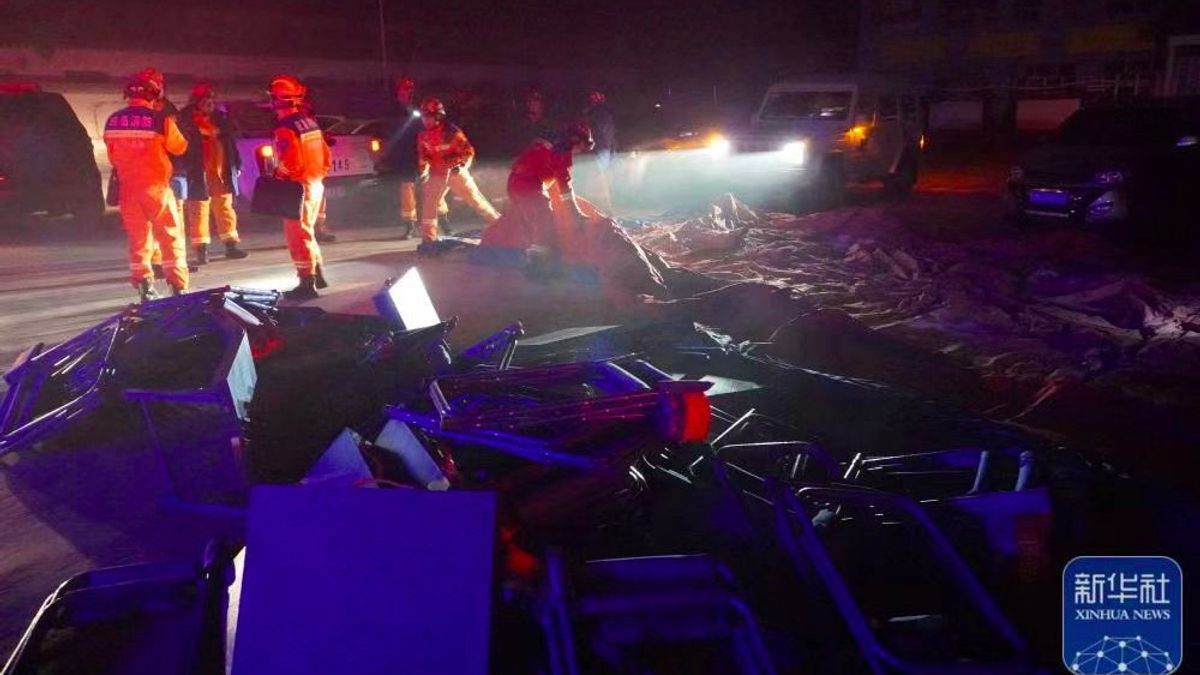JAKARTA - The death toll from the Richter-scale earthquake that rocked Gansu Province on Monday midnight increased to 137 people, while hundreds of others were injured and dozens more were still missing until Thursday.
Chinese media reported that search and rescue in Gansu ended at 3pm on Tuesday, about 15 hours after the disaster hit remote areas and mountains near the border that crossed Gansu and Qinghai provinces. It is not clear whether searches in Qinghai are still ongoing.
In Gansu, 115 people were found dead on Wednesday at 09.00 and 784 people were injured, authorities said. Gansu authorities have not reported any missing persons.
Meanwhile in Qinghai, it was recorded that the death toll had risen to 22 people with 198 people injured and 12 people missing at 20:56 local time Wednesday.
More than 207,000 houses were destroyed and nearly 15,000 houses collapsed in Gansu, impacting more than 145,000 people.
On social media, netizens are curious about the search and rescue efforts carried out in Gansu, with the search time usually 72 hours after the disaster being shortened estimated because the temperature is below the freezing point.
People who have been trapped under the rubble affected by temperatures of -10 Celsius (14°F) for a long time, are at risk of experiencing rapid hypothermia and may only be able to live for five to 10 hours even if not injured, local media reported, citing researchers.
"They must have died when they were found, even 24 hours it was too long. The temperature outside the room was below minus 10 degrees Celsius," a Weibo user commented.
Some users on Weibo are considering other factors such as less extensive search areas, and everyone has been known, so rescue efforts end in less than a day.
Meanwhile, survivors face uncertainty in the months of winter, without permanent shelter amid extreme cold temperatures.
In Sibuzi Village in Gansu, local residents are worried about a frozen winter.
"Many people fled their homes, some without socks, ran without footwear. The air was very cold as it stood on the ground," said Zhou Habai, an ethnic Hui woman.
The 24-year-old, who now lives in an emergency tent after her house was destroyed, said some villagers had collected and burned firewood to keep it warm.
SEE ALSO:
About 60 percent of those who survived have not received a tent, 63-year-old Ye Zhiying told Reuters.
He said Communist Party officials had told them the village would distribute tents on Thursday afternoon and would be set up in less than a week.
"Whether everyone can be accommodated or not, we don't know," said a resident of Hui Village.
The English, Chinese, Japanese, Arabic, and French versions are automatically generated by the AI. So there may still be inaccuracies in translating, please always see Indonesian as our main language. (system supported by DigitalSiber.id)


















